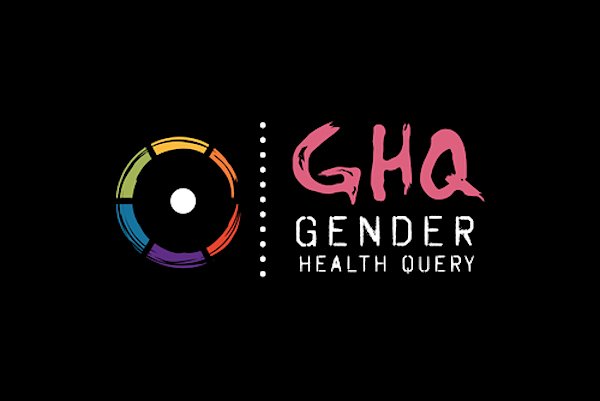News in Trans Medical Treatment Side-Effects
NEWS Links
GHQ covers the side-effects of medical transition for gender dysphoria in Topic 2. We are tagging recent news articles to update that section.
1) There is contradictory information regarding the risk of blood clots and stroke. Two newer studies do not show elevated risk of blood clots.
“Venous Thrombotic Risk in Transgender Women Undergoing Estrogen Therapy: A Systematic Review and Metaanalysis” (Kahn 2019) states the risk of hormone therapy is similar to that of women who are on birth control pills.
“Effects of Gender-Affirming Hormones on Lipid, Metabolic, and Cardiac Surrogate Blood Markers in Transgender Persons” (Defreyne 2019) attributes risk thromboembolic morbidity to the use of estradiol, no longer prescribed and thus more recent regimens are safer. They also state evidence on cardiometabolic disease is inconclusive.
2) “Physiologic Response to Gender-Affirming Hormones Among Transgender Youth" (Olson 2018) indicates that some young females being given testosterone may already be pre-hypertensive. In two females in the study, after 2 years of testosterone, the BP went from normal to hypertensive, and triglycerides increase, HDL decreases. A normal range is under 120 SBP. Elevated is 120-129. HTN is 130 and up. SBP went from 115 to 128 but is described in the paper as "not clinically significant:"
RESULTS: Of the initial 101 participants, 59 youth had follow-up physiologic data collected between 21 and 31 months after initiation of hormones available for analysis. Metabolic parameters changes were not clinically significant, with the exception of sex steroid levels, intended to be the target of intervention.
3) "Effects of testosterone therapy on lipid profile in trans men during a 6-month prospective clinical study" (Tancic-Gajic EPATH presentation) indicates testosterone therapy may lower HDL (good) cholesterol.
Short term testosterone therapy in transgender men was associated with increases in BMI and with decreases in HDL-cholesterol. Long-term studies are needed to assess the long-term cardiometabolic risks of testosterone therapy in trans men.
4) “Suppressing Puberty by GnRHa: Unresolved concerns” (Meyer-Bahlburg EPATH presentation) reviews the data indicating concerns for the use of hormone blockers in children/teens:
Results and Conclusions
Animal models: Studies of the effects of prolonged GnRHa treatment in juvenile sheep have shown sex-specific im- pacts on emotion and behavior regulation (Wojniusz et al., 2011), impairment of long-term spatial memory (Hough et al., 2017a) which persisted after GnRHa discontinuation (Hough et al., 2017b), sex-specific effects on gray-matter and amygdala volume (Sex on Brain European Research Group - SOBER, et al., 2013), and on sex-biased gene ex- pression of the amygdala (Nuruddin et al., 2013).
Children with CPP: Two modest-sized studies showed impairment of Wechsler IQ of about 1⁄2 standard deviation, affecting especially the Performance IQ (Mul et al., 2001; Wojniusz et al., 2016; Hayes, 2017).
Adolescents with GD: A case study showed a significant drop in working memory, which did not reverse after GnRHa treatment ended (Schneider et al., 2017). In a study of a small sample, GnRHa treatment did not affect executive functioning in terms of the Tower-of-London task (Staphorsius et al., 2015).In conclusion, the very limited findings from sheep studies as well as from small human samples raise significant concerns about possible long-term adverse side effects of prolonged GnRHa treatment on brain development. Urgently needed are: (a) systematic studies of GnRHa effects on the developing brain in animal models that are more closely guided by the evidence regarding brain organization during puberty; (b) corresponding (preferably prospective) studies of pertinent behaviors and underlying brain structure and function in human clinical samples undergoing GnRHa treatment.
5) There are two papers about two incidences of adolescent females with venous thromboembolism, a life-threatening condition.
“Hormone Therapy and Venous Thromboembolism in a Transgender Adolescent” (Stanley 2018):
Abstract
Venous thromboembolism can be precipitated by both genetic and acquired factors, but the role of testosterone therapy is less clear. Here, we present a 17-year-old transgender adolescent, transitioning from female to male, receiving both estrogen and testosterone therapy, who developed a pulmonary embolism without an underlying genetic thrombophilic condition. As transgender medical care evolves, the use of testosterone as cross-sex hormone therapy in adolescents is likely to increase. Our review suggests that care must be taken when initiating treatment with testosterone, and modification of other thrombophilic risks should be explored before starting therapy in this population.
“Venous Thromboembolism in a Transgender Adolescent on Testosterone Therapy: A Case Report and Literature Review.” (Fan 2020):
Abstract
The incidence of pediatric venous thromboembolism (VTE) has been increasing in the past few decades and can be associated with significant mortality and morbidity. There are known risk factors associated with VTE, including estrogen therapy. However, the relationship between testosterone and VTE remains unclear. Here, we present a 17-year-old female-to-male transgender patient without a history of inherited thrombophilia, who developed pulmonary embolism while receiving testosterone injections for gender dysphoria. Despite the limited data on testosterone and the risk of VTE, health care providers should counsel patients and family about the possible increased risk of VTE when starting testosterone.
6) Hormone blockers have negative impacts on bone health but cross-sex hormones may not to the same extent.
“Hormone therapy in transgender patients is safe for bone”
Transwomen are more likely to have a lower bone mineral density (BMD) before beginning hormone therapy, compared with male reference populations, but there are no short- or long-term risks to bone health over the life of a transperson who receives hormone therapy, according to a presentation at the annual meeting of the American Society for Bone and Mineral Research.
“Hormonal treatment of transgender people is safe with respect to bone,” said Martin den Heijer, MD, PhD, of the VU University Medical Center in Amsterdam.
This article did say after ten years, there was an increased risk of osteoporosis and hip fracture.
7) “Brain Maturation, Cognition and Voice Pattern in a Gender Dysphoria Case under Pubertal Suppression” (Schneider 2017) shows puberty blockers may cause as much as a ten-point drop in IQ points but this is not mentioned in the abstract. The abstract doesn't mention that IQ fell from 80 to 70 after GnRHa. Also, IQ normally increases between age 8 and 16.
The Pediatric Endocrine Society recently issued a statement claiming that the effects of puberty-blocking medications on normal puberty are reversible. Has the FDA determined that there is scientific evidence to validate this claim? Have there been any rigorous long-term studies addressing this question? Is social transition truly harmless? Is it ethical to continue this experiment on children? The answer to all of those questions is no.
The author, who strongly opposes pediatric medical transition, lays out other negative health consequences to medically transitioning minors here. He also states the even if the medical establishment deems puberty blockers to be dangerous, cross-sex hormones alone won’t be enough to stop masculinization in males on estrogen.
9) Trans people experience very high rates of sexual dysfunction (Kerckhof 2019).
“New study provides insight into the sexual dysfunctions experienced by transgender individuals:”
Transgender individuals tend to report experiencing more sexual problems than the general population, according to new research published in The Journal of Sexual Medicine. But the prevalence of sexual dysfunction is highest among transgender individuals who do not receive gender-affirming surgeries…
“At the same time, the study shows us that even after gender-affirming interventions, both trans women and trans men still suffer from a specific number of sexual complaints. These individuals in the female spectrum experience orgasm difficulties (1 in 3), pain complaints during intercourse (1 in 4) and a fear of sexual contact (1 in 5),” Elaut said…
Like all research, the study includes some limitations. The study used a cross-sectional design — so it is unclear if gender-affirming interventions reduce sexual dysfunction or if people with better sexual functioning are more likely to undergo such operations…
The study, “Prevalence of Sexual Dysfunctions in Transgender Persons: Results from the ENIGI Follow-Up Study“, was authored by Mauro E. Kerckhof, Baudewijntje P. C. Kreukels, Timo O. Nieder, Inga Becker-Hébly, Tim C. van de Grift, Annemieke S. Staphorsius, Andreas Köhler, Gunter Heylens, and Els Elaut.
10) We are adding several articles and the negative side-effects steroids have on the female body:
“Performance Enhancing Anabolic Steroid Abuse in Women”
“Why Anabolic Steroid Addiction Is More Dangerous for Women—and How to Get Help"
"Psychiatric and medical effects of anabolic-androgenic steroid use in women"


